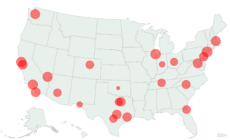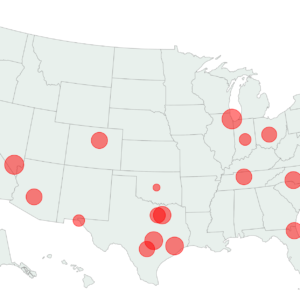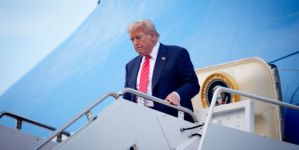-
Carol Alt credits SI Swimsuit for her 47-year successful modeling career - 25 mins ago
-
Measles: California has seen more cases this year than all of 2024 - 30 mins ago
-
Map Shows Cities Where Malls are Dying Off Fastest - 37 mins ago
-
Dallas Mavericks select Cooper Flagg with the 1st pick in the 2025 NBA Draft - 40 mins ago
-
Iran’s supreme leader claims ‘victory’ in his first comments after U.S. strikes - 42 mins ago
-
200th Anna Ball Expects Record Crowd to Balatonfüred - about 1 hour ago
-
California veterans urge study of ‘lifesaving’ psychedelic therapy - about 1 hour ago
-
Iran Questions US Sincerity Ahead of Possible Nuclear Talks - about 1 hour ago
-
Could Cooper Flagg Become First North American Athlete to Earn $1B In Contracts? - about 1 hour ago
-
China cracks down on hotel offering red panda ‘wake up call’ service - 2 hours ago
China in Sea Resource Dispute With US Ally
Tensions flared this week between China and Japan after Tokyo detected a new Chinese structure in an energy-rich area of the East China Sea.
“China’s oil and gas exploration activities in the East China Sea are conducted in undisputed waters under China’s jurisdiction,” Chinese foreign ministry spokesperson Guo Jiakun told reporters Wednesday, after Tokyo lodged a formal protest.
Newsweek reached out to the Chinese and Japanese foreign ministries with written requests for comment.
Why It Matters
The latest structure, along the line equidistant between the two countries, is the 20th in a sequence that has included suspected oil rigs and hydrocarbon platforms.
China and its U.S. ally Japan agreed in 2008 to codevelop gas fields in the region, but negotiations stalled before the two sides could reach an agreement on their official maritime boundaries.
While China has limited construction of these platforms to its own side of the median line, Japan believes the operations are draining oil and gas reserves from basins that straddle both countries’ claims.
What To Know
Japan’s foreign ministry said Tuesday it had confirmed the installation of a new structure in the disputed zone and called China’s unilateral resource development in the waterway “extremely regrettable.”
Kanai Masaaki, head of the ministry’s Asian and Oceanian Affairs Bureau, “lodged a strong protest” with a senior Chinese diplomat at the Chinese embassy and urged the immediate resumption of talks.
Kazuhiro Nogi/AFP via Getty Images
Guo pushed back at Wednesday’s press briefing, saying China does not accept Tokyo’s complaint, which he called unwarranted.
China and Japan are also at odds over a collection of Tokyo-controlled islands, known in Japan as the Senkaku Islands and in China as the Diaoyu Islands.
China has increased both the frequency and size of its coast guard patrols in the area in recent years, contributing to a steady escalation in maritime tensions.
What People Are Saying
Guo told reporters: “China upholds and remains committed to the comprehensive and effective implementation of the principled consensus on the East China Sea issue. We hope Japan will work in the same direction with China and make effort for resuming the intergovernmental negotiation between the two countries at an early date.”
What’s Next
It remains unclear when negotiations will resume to delineate China and Japan’s maritime zones.
A similar dispute has emerged in the Yellow Sea over Chinese structures in a zone China and South Korea agreed to jointly manage fisheries.
Beijing maintains the facilities are intended to support fishing operations. South Korean officials suspect China seeks to gradually achieve de facto control over those waters, warning of countermeasures if China fails to be more transparent.
Source link































